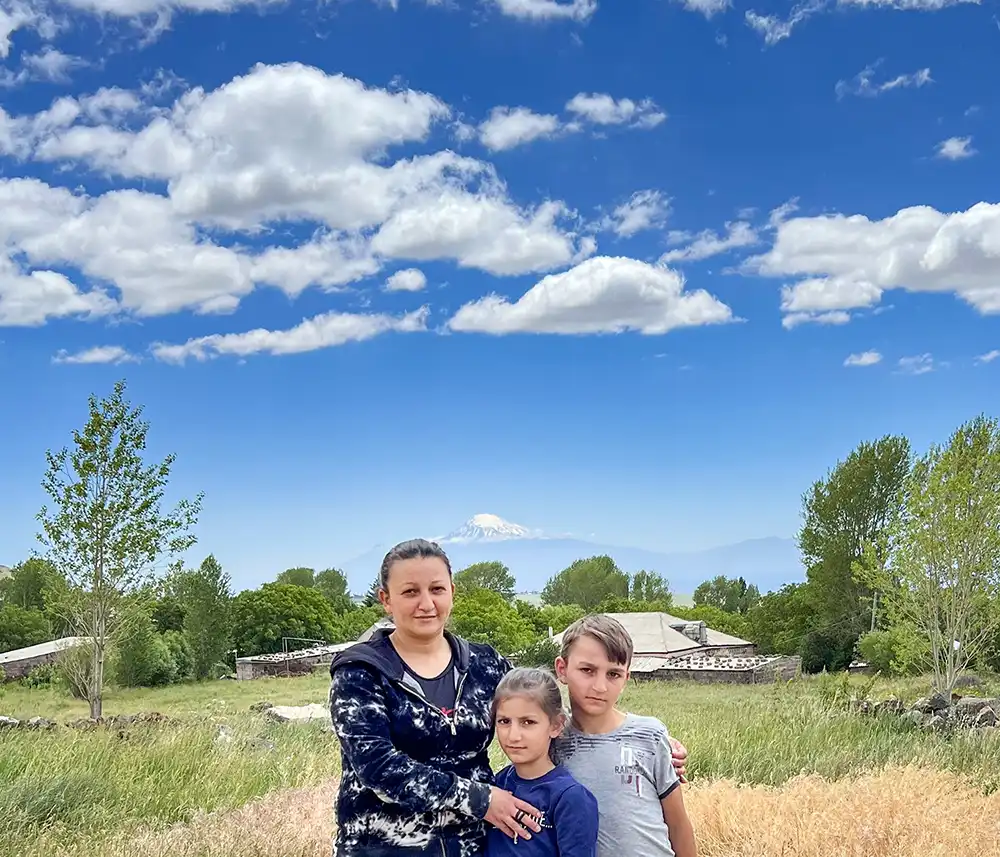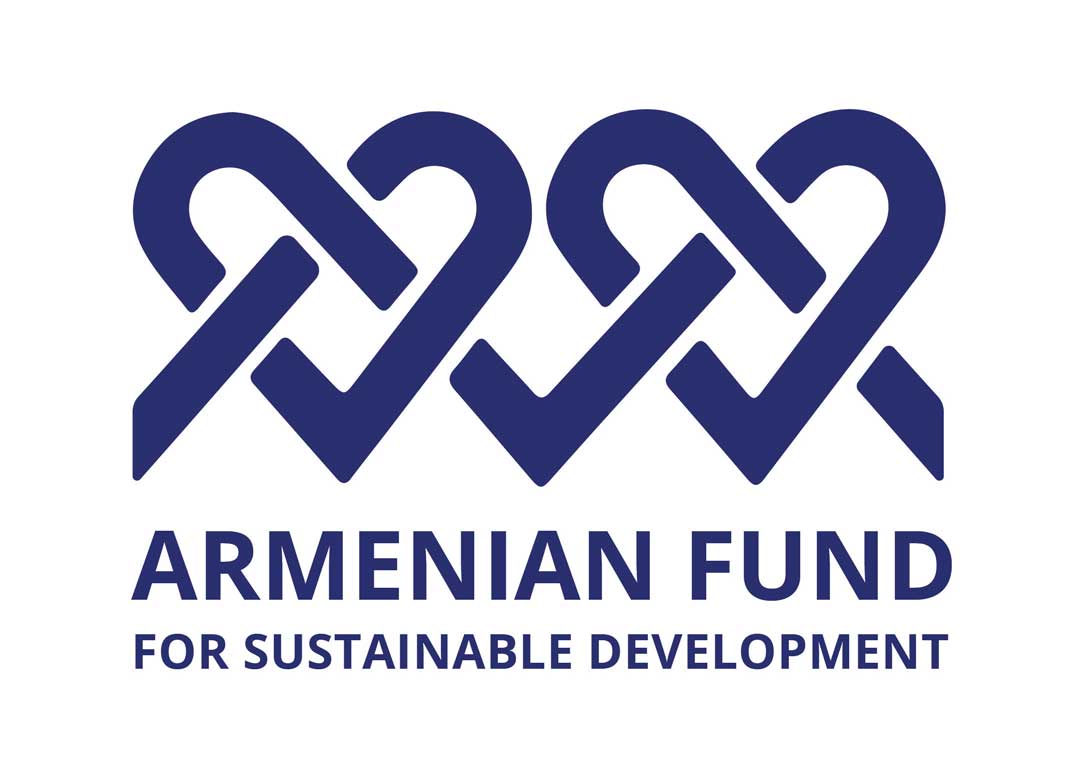They share our joy and sorrow- From Artsakh to Shgarshik
We arrived directly from Artsakh (Nagorno-Karabakh) in late September 2023 without anything because we didn’t have enough time to prepare. With four children, we stayed a couple of days in Goris, which was awash with refugees and a total mess.
We moved to the Kotayk region with my sister and her husband, who also has four children, plus my mother. They found an apartment in the ex-Soviet bloc, and we settled in the nearest village.
The house was severely damaged before we arrived, but it was late autumn, and we decided to stay because there was nowhere else to go. It was the best choice at that time.
My husband and I did our best to find jobs, but we soon realized that our earnings would never be enough to cover the basic living expenses. Winter was harsh, but I had a premonition that something would change.
In early February 2024, I stumbled upon the “Vulnerable Women Empowerment in Armenia” project on the Armenian Fund for Sustainable Development Facebook page. Their call for proposals was intended for refugee women, and they were funding projects in the agricultural sector. Our family perfectly matched the criteria, and I applied to participate in the project.
I submitted my proposal on pig farming and kept waiting. Finally, my project was approved, and they bought me four sows. It was a great relief, and, more importantly, it was hope to continue, a beginning of something new in our new life. We decided to move to another region of Armenia where winters could be milder, but we wanted to find a place similar to Artsakh.
Of course, we didn’t find exactly the Artsakhian landscape, but there were green mountains. But above all, there were warm-hearted people who accepted us as their relatives. It was a very unusual but strong feeling of closeness with the inhabitants of Shgharshik village, Aragatsotn region of Armenia. They were very helpful and did their best to ensure our reintegration.
I thought a lot about this, and several days after we moved, I understood that their hospitality was rooted in a shared history—their ancestors, like our family, were also refugees but survivors of the 1915 Armenian genocide from Samsun.
We share a big house with our wonderful neighbors, and we plan to expand our small farm to include more sows and piglets, sheep, and chickens.
Now, as we settle into our new life, I’ve also decided to find a house for my sister and her family. Should I manage this feat, it would be the second Artsakhian family in this beautiful village.
“The “Vulnerable Women Empowerment in Armenia” project is co-funded by the Saint Sarkis Charity Trust and Association Arménienne d’Aide Sociale and implemented by the Armenian Fund for Sustainable Development .
The Arev Society provides management support to the AF4SD’s “Vulnerable Women Economic Empowerment in Armenia” program.

